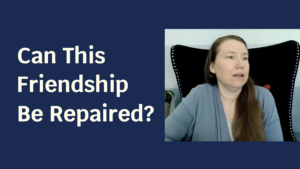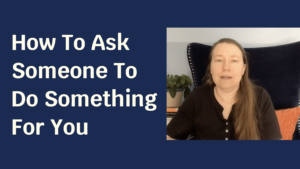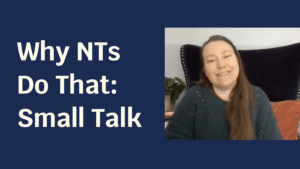
Healthy Communication is Like Safe Driving
The things that drivers do to stay safe and keep others safe, are the same types of things that go on in healthy relationships.

The things that drivers do to stay safe and keep others safe, are the same types of things that go on in healthy relationships.

There are many parts to the internal work that we do to get reasonably comfortable with people. Here are some common ones.

Do you have conflicting thoughts about the idea that self-acceptance can actually work as a way to have better relationships?

Self-acceptance is a nice ideal, but how does it practically get you friends?

Strategies to increase socializing by dealing with the anxiety, or improving social skills, aren’t bad ideas, but they produce limited, short-term results. Here are two reasons why.

A brief, imaginary dip into what “being reasonably comfortable around people” practically looks like.

If your default mode is that people are scary, mean, and tiring, but you still long for good friendships and better relationships, I get that. I’ve been there. And there is hope.

Friends can hurt each other, and that doesn’t have to be the end of it. However, sometimes it just may not work out.

How much gas money you’re supposed to give for a ride is tricky. There’s lots of factors and different views. Here’s some thoughts to help you figure it out.

This phrase has helped me gradually shift from a negative outlook on sensory issues, socializing, and myself, to a tendency toward looking for the good.

It can be intimidating to ask someone to do something for you, yet we all have to do this. I’m going to discuss an approach I’ve pieced together on how.

Autistics and neurotypicals tend to have very different views on small talk. What’s going on from both sides?